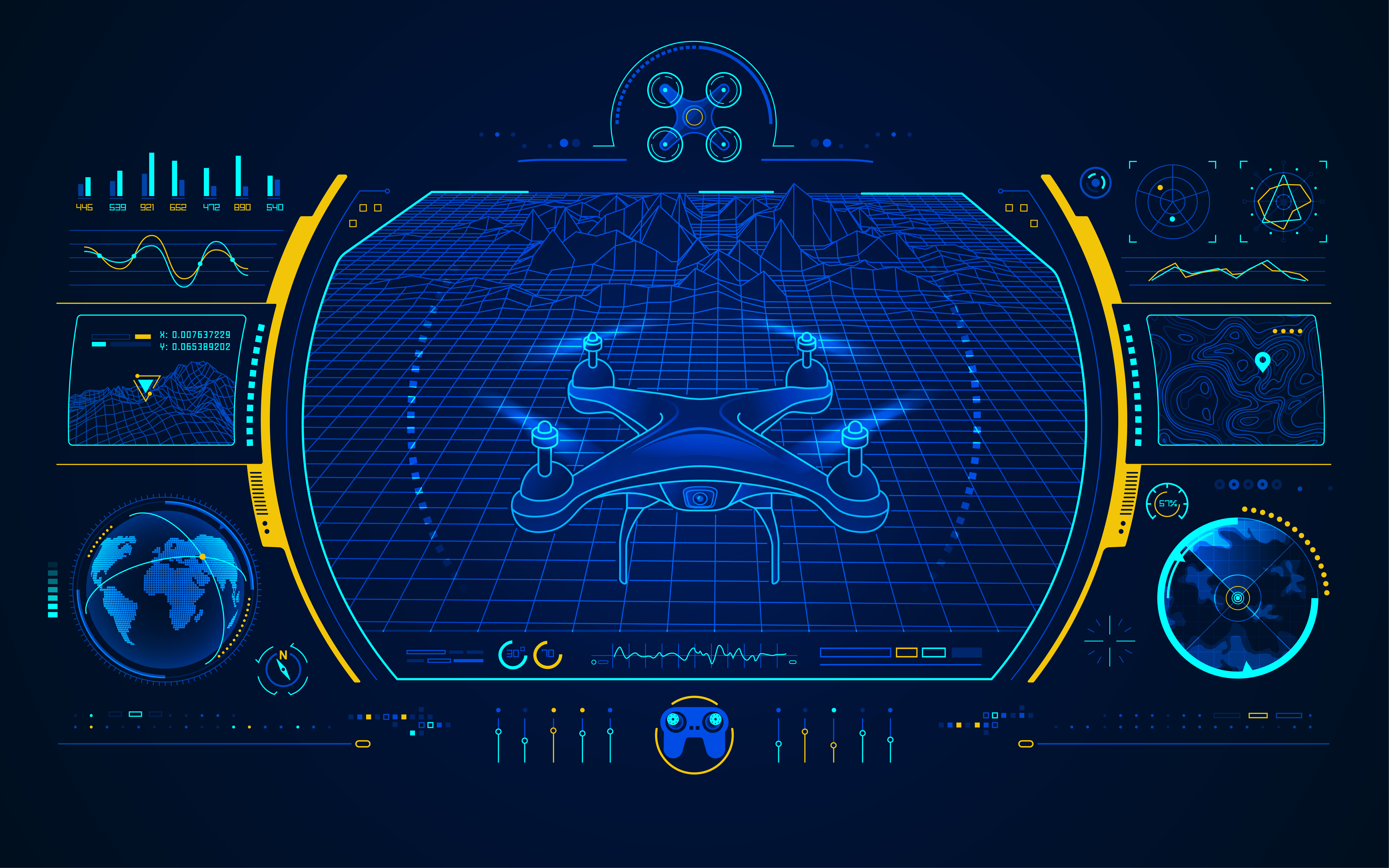Courses
Remote Pilot training:
Recognizing DGCA Safety Regulations trainees are encouraged to develop safety attitude while flying Drones. Upon completing the course, trainee will be able to Identify different types of Drones & will have clear understanding on fundamentals of Flight (Aerodynamics), ATC procedures & Radio Telephony, different regulations of DGCA, Civil Aviation Requirements, Weather and meteorology.
Course Outcomes:
Our certified trainee will be able to
- Develop & apply knowledge of Airframes, Electric motors & Propellers. Identifies & selects Electronic Speed Controllers (ESC) & flight Controllers for Drones.
- Recognize application of Batteries, Chargers & Connectors, Transmitters & Receivers, Cameras, Gimbals & other payloads.
- Apply knowledge of Ground Control Stations & FPV.
- Perform Assembling, MRO & battery care of Drones.
- Identify& selects Basic operating features of a Drone Flight Simulator.
- Fly a Drone with instructor
- Perform solo flight Carry out entire flying operations from pre-flight checks to after flight checks while flying a drone in simulator training & live training.
The DGCA licensed course offers:
- Ground training
- Simulator flying
- One on one practical flying
- Solo flying
- Instrument flying
- Exposure to various emergency procedure
Eligibility:
- Qualification - 10th Pass English Medium
- Age - 18 years
Segments of our training
Basic training and theory sessions
Regulations of DGCA , Civil Aviation Requirements
- Classification
- Basic Air Regulations
- Salient points
- Do's and Don'ts
- Instrument flying
- Exposure to various emergency procedure
Basic principles of flight
- Fundamentals of flight
- Aerodynamics
- Take-off, flight, and landing
- Manoeuvres, turns and circuit pattern
Drone equipment maintenance
- Maintenance of drone, flight control box, ground station
- Maintenance of ground equipment, batteries and payloads
- Scheduled servicing
- Repair of equipment
- Fault finding and rectification
Emergency identification and handling
- In flight emergencies
- Loss of link
- Fly-aways(Straying)
- Loss of power
- Control surface failures
Payload, installation and utilization
- Types of payloads
- Parts of payloads
- Installation
- Features of payloads
- Utilization
Image and video interpretation
- Principles of observation
- Interpretation of image/video
- Analysis
ATC procedures & Radio Telephony
- Understanding ATC operations
- Airspace Structure and Airspace Restrictions with knowledge of No Drone Zones
- Communicating with ATC including Position and Altitude Reporting
- Flight Planning Procedures
- Collision avoidance
- Radio Telephony (RT) techniques
- Standard radio terminology and RT Phraseology
- Practice Session in Radio Communication
Weather and meteorology
- The standard atmosphere
- Measuring air pressure
- Heat and temperature
- Wind
- Moisture, cloud formation
- Met Terminal Aviation Routine Weather Report (METAR)
Multi rotor introduction
- Basic drone terminology
- Types of drones, material used and size of drones
- Motors and propellers
- Electronic Speed Controller (ESC), flight controllers
- Operation and Applications of drones
- Advantages/disadvantages over multi rotor drones
Simulator Training

Introduction to flight simulator
- Basic operating features of simulator
- How to select different aircrafts and aerodromes
- Demo flight
Flight simulator training
- Pre-flight checks and start-up
- Preparation cum coordination for flight
- Take-off and flight stage
- Approach and landing
- After flight checks
Practical sessions
Practical lessons in Lab
- Assembling of drone
- De-assembling
- Integration of sub-sections/ modules
- Integration of engine/propulsion system
- Fault finding and rectification
- Repair maintenance and documentation
Practical lessons on field
- Practical flying with instructor
- Practical flying with instructor/solo flying
- Practical flying with instructor/solo flying
